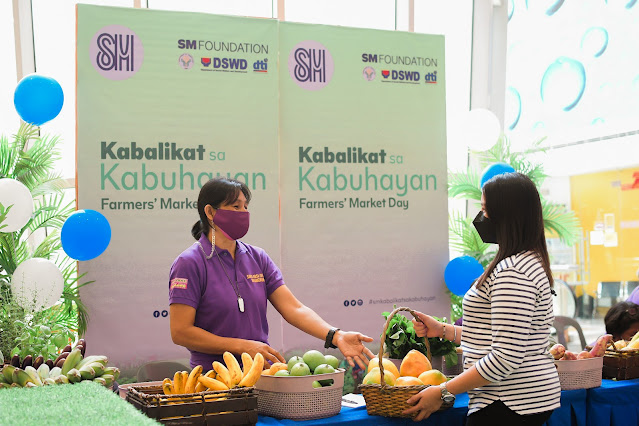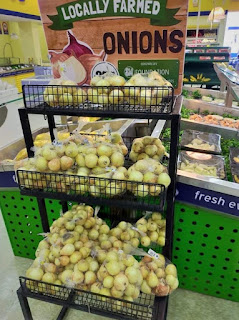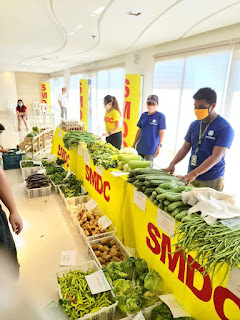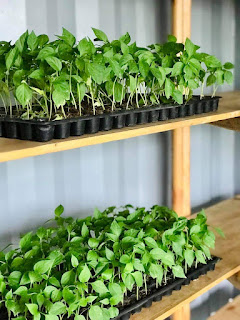Because of this challenge, SM Foundation collaborated with various government agencies and engaged various SM business units such as the SM Development Corp. (SMDC), SM Supermalls, and SM Markets to ensure that local farmers under the Kabalikat Sa Kabuhayan (KSK) program have venues where they can sell their produce amid the COVID-19 pandemic.
From training KSK participants in practicing sustainable farming technologies via technology transfer and product development, SMFI, together with various SM business units used the power of collaboration to create farm-market linkage - which intends to create a powerful driver of rural poverty reduction.
Team social good
The Good Guys Market is a weekend market set up in SMDC properties to connect small-scale farmers directly with consumers—condo residents. This initiative links around 26,000 small-scale farmers directly with consumers.
Together with SM Supermalls, SMFI launched the Green Lane initiative. Led by the wives of the KSK farmers, the social enterprise offers a wide variety of quality yet affordable indoor and landscape plants which cater to every enthusiast’s preference. In addition, the team also launched the KSK Farmers’ Market Day to provide farmers with market exposure in select SM Malls nationwide.
Meanwhile, SMFI also partnered with SM Markets in creating a market for onion farmers. Through the partnership, SMFI was able to establish specialized onion pop-up booths creating a stable market for small-scale onion farmers.
Millions of smallholder farmers are seeking ways to improve the productivity of their farms and improve their market performance. Modern farming technologies, paired with market linkage, such as the SM KSK, play a vital role in improving the livelihood of small-scale farmers and their families.
SM Foundation’s Kabalikat Sa Kabuhayan (KSK) is SMFI’s Social Good program on sustainable agriculture that intends to uplift the lives of Filipinos in grassroots communities through sustainable agriculture via technology transfer, product development, and farm-market linkage. To date, the program has trained more than 28,500 farmers from more than 900 cities/municipalities nationwide.


















0 Comments